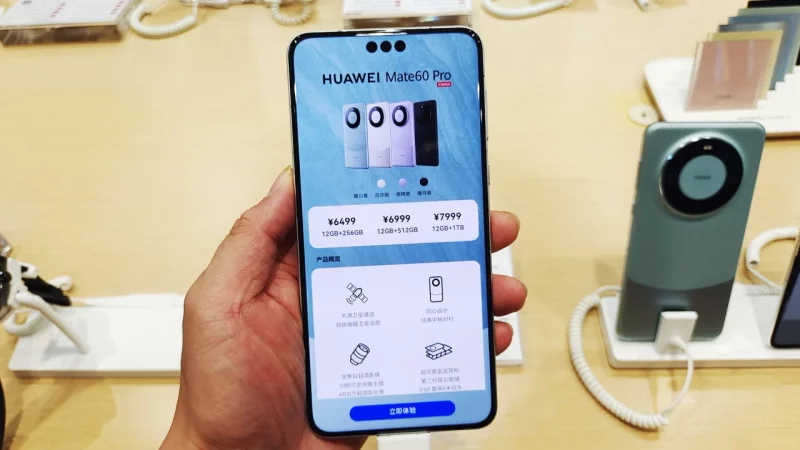“While access to 5G for the chipset is one thing, I’m not sure how the company managed to source all the other components that need to go into a 5G smartphone, such as power amps, switches and filters,” he said.
When Huawei unveiled the Mate 60 Pro smartphone late last month, it did not include much information about the chip on its website product page, beyond that it promises better communication experience and a more stable network connection. But last week, consultant firm TechInsights did a breakdown of the Mate 60 to get a closer look at the chip, which appeared to be a 7-nanometer processor made by China’s Semiconductor Manufacturing International Corporation (SMIC).
SMIC, which is a partially state-owned Chinese company, was included in the export restrictions set up by the US government several years ago.
National Security Adviser Sullivan added that the United States “should continue on its course of a ‘small yard, high fence’ set of technology restrictions focused narrowly on national security concerns … regardless of the outcome.”






